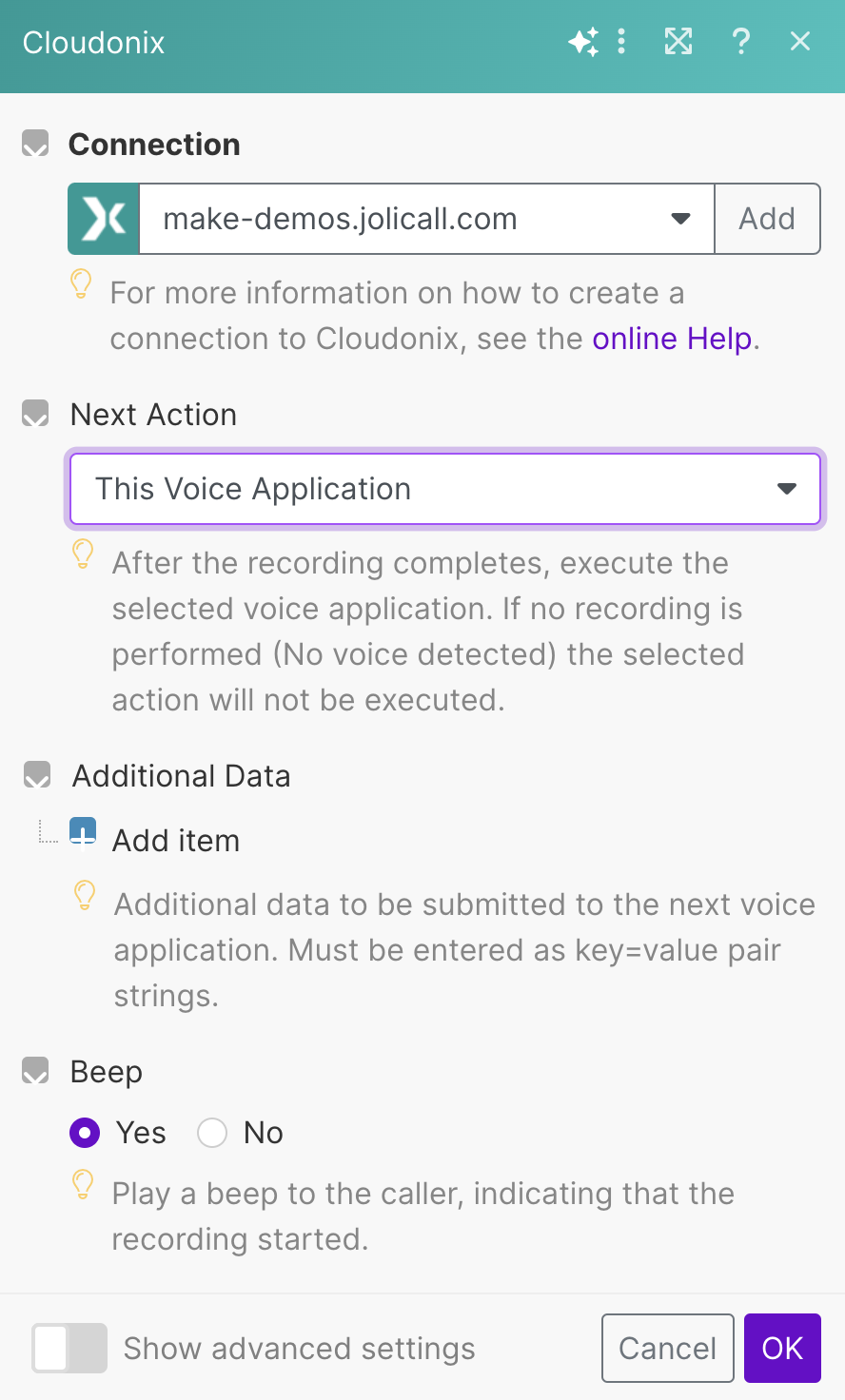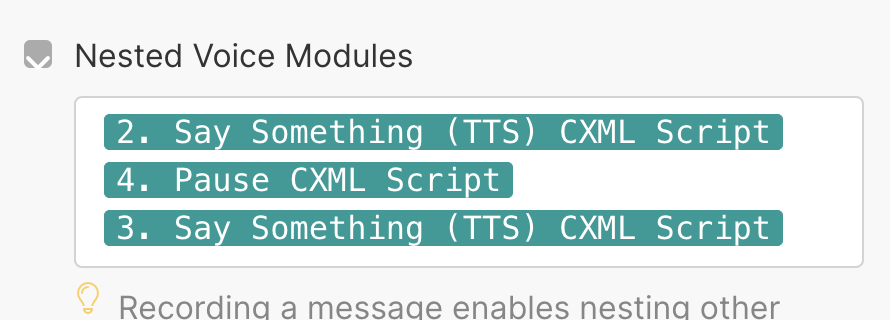Record a message
If you hadn't yet read the intro part of this section, please click here to read it first.
Description
This module provides the developer access to the Cloudonix Record Verb. Activating this module will instruct your currently running voice application to initiate an audio recording from the caller.
Workflow
This module may be executed at any point of a scenario - however, pay attention to where the output is used in your CXML response.
Module Example

Parameters
| Parameter | Description |
|---|---|
| Connection | The Voice Application Connection to be used for the query. |
| Next Action | See Below. |
| Action | The voice application to execute. Available for Attached or Detached Voice Applications. |
| Endpoint | The voice application remote HTTP endpoint. Available for Custom Voice Application Endpoint only. |
| Additional Data | An array of key=value pairs, to be passed to the new Voice Application as part of the request data. |
| Beep | Play a short beep tone to the caller, indicating that the recording started. (Default: true) |
| Nested Voice Modules | See Below |
Next Action Targets
This Voice Application
Voice application control is returned to the current voice application, with potential additional data.
Attached or Detached Voice Application
Voice application control is passed to the voice application that was previously built with Make.com.
Custom Voice Application Endpoint
Voice application control is passed to the URL designated in the Endpoint parameter.
Nested Voice Modules
As described above, the record module activates the Cloudonix CXML Record Verb, which is an asynchronous verb. In Cloudonix, asynchronous verbs (<Record> and <GATHER>) enable the developer to nest other verbs, to be executed while the recording is performed.
The voice modules that can be nested are: Say Something, Pause and Play.
Nested voice modules are executed, in parallel to the recording, in the order they appear in the Nested Voice Modules parameter.
Example
Let us examine the following scenario diagram:

As you can see, our scenario consists of 2 Say Something modules, a Pause module and a Record module. The Record module includes the following nested voice modules parameter:

The resulting CXML of this scenario will look similar to this:
<Response>
<Record action="https://example.com/recordingScript" method="POST">
<Say>Welcome to acme corporation</Say>
<Pause legnth="2" />
<Say>No one is available right now, please record a message and we'll get back to you</Say>
</Record>
</Response>
The above CXML document, generated from the scenario, will instruct Cloudonix to start a recording and playback the messages in sequence. If the platform identifies that the remote party started talking, it will stop the playback and wait for the recording to complete.
Advanced Mode
| Parameter | Description |
|---|---|
| Finish Input Key | Terminate the recording if any of the selected keys had been pressed. (Default: #) |
| Maximum Duration | Maximum duration to record, before continuing with the voice application execution. (Default: 180 seconds.) |
| Silence Timeout | Maximum time to allow a recording to continue without audio. If no audio is recorded for this periond, the recording will complete and execution will continue. (Default: ) |
| Recording Status Callback URL | Remote HTTP URL to receive your call recording notication. |
| Recording Status Callback Method | The HTTP Method to use for recording status notifcations. (Default: POST) |
| Report Events Selection | If none specified, all events will be reported. Select your desired events for better granularity. (Default: All events) |